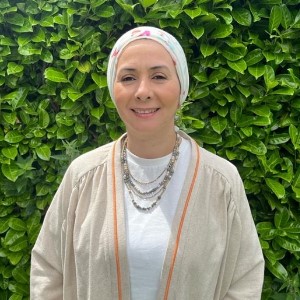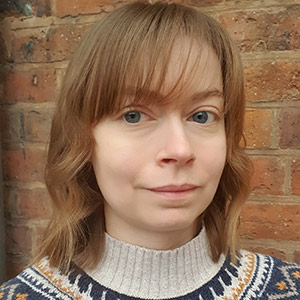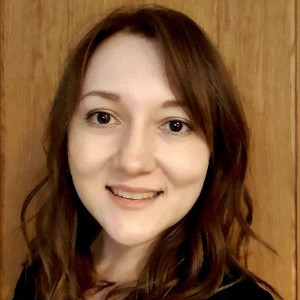Neurorehabilitation Research Group
Our research is part of the Prevention, Performance and Rehabilitation research theme in the Faculty of Medicine and Health Sciences at Keele University (hosted by the School of Allied Health Professions).
The aim of our research is to influence, impact and improve the assessment and management of long-term neurological conditions, such as stroke, acquired brain injury, Parkinson’s, Multiple Sclerosis, and Cerebral Palsy, particularly in relation to patient care delivered by Allied Health Professionals (AHPs). Despite the substantial impact of long-term neurological conditions on individuals and society, rehabilitation and AHP related research has not received the research attention it deserves. We are therefore passionate about partnering with people living with long-term neurological conditions, AHPs involved in neuro-rehabilitation, NHS services, and third sector organisations, as well as other researchers.
We want to:
- evaluate and test complex interventions for people living with long-term neurological conditions
- explore people’s experiences of living with long-term neurological conditions
- explore and evaluate opportunities for self-management and novel methods of delivering ongoing therapy and rehabilitation in the community
- use real-world data to inform quality improvements in AHP services and reduce the impact these conditions have on the lives of patients.
The research team
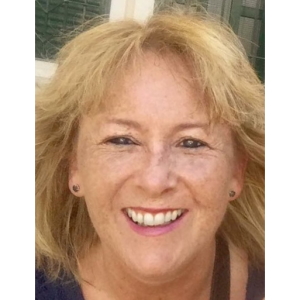
Dr Sue Hunter
Deputy Head of School;
PGR Lead (SAHP);
FReT Lead
- MAC 1.26
- 01782 733809
- s.m.hunter@keele.ac.uk
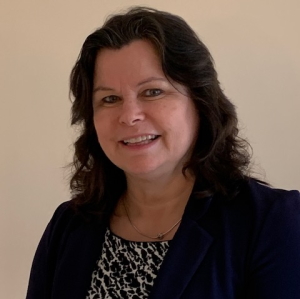
Dr Ali Aries
Senior Lecturer
- MAC 1.18
- 01782 734418
- a.m.aries@keele.ac.uk
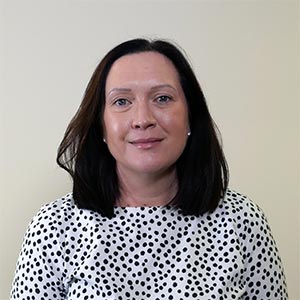
Poppy Downing
Lecturer in Physiotherapy (Neurology)
- Mackay Building 0.01
- p.downing@keele.ac.uk

Dr Alison Rogers
Lecturer in Physiotherapy
- MAC 1.05
- 01782 734565
- a.rogers1@keele.ac.uk
Honorary and external members

Dr Aseel Aburub
Assistant Professor for cardiovascular and respiratory physiotherapy, Assistant Dean of the Faculty of Allied Medical Sciences
- Applied Science Private University, Amman, Jordan

Dr Kathryn Jarvis
Senior Research Fellow, Stroke Team, Senior Lecturer in Occupational Therapy and Professional Lead for Occupational Therapy
- School of Nursing and Midwifery, University of Cental Lancashire (UCLAN)

Dr Judith Purton
Honorary Research Fellow
- School of Allied Health Professions, Keele University

Dr Jacqui Winter
Honorary Research Fellow
- School of Allied Health Professions, Keele University
|
Staff |
Research interests |
|
Dr Sue Hunter (group lead) |
|
|
Dr Ali Aries (co-lead) |
|
|
|
|
|
|
|
|
|
|
|
|
|
|
Dr Jacqui Winter |
|
|
|
|
|
|
|
|
Rachel Rutley |
|
- Perceptions of and attitudes towards aging in clinical Allied Health Professionals: lessons for educators. Carole Watkins. Supervisors: Dr Sue Hunter, Professor Julius Sim
- Experiences of counselling for mental health in older women. Bridget Jones. Supervisors: Dr Sue Hunter, Professor Sue Read
- Mobilization and Tactile Stimulation for the upper limb post-stroke: enabling carers to deliver aspects of physical therapy in the community. Remi Popoola. Supervisors: Dr Sue Hunter, Dr Jacqui Winter
- Wheelchair prescription for children with mobility problems in the UK and Kuwait. Sarah Alsuwailam. Supervisors: Dr Ali Aries, Dr Sue Hunter
- Dr Alison Rogers – PhD, 2022, University of East London. Thesis: Foot and ankle impairments affecting mobility in stroke. Supervisors: Dr Mary Cramp,
- Dr Aseel Aburub – PhD, 2021, Keele University. Thesis: Aerobic exercise to improve respiratory function in Parkinson’s. Supervisors: Dr Sue Hunter, Professor Julius Sim
- Dr Badrieh Alabbad PhD, 2020, Keele University. Thesis: Self-management support for people with Multiple Sclerosis. Supervisors: Dr Sue Hunter, Dr Helena Priest
- Dr Ali Aries PhD, 2020, Keele University. Thesis: Somatosensory stimulation to improve lower-limb recovery after stroke. Supervisors: Dr Sue Hunter, Professor Julius Sim, Professor Val Pomeroy (UEA)
- Dr Judith Purton PhD, 2017, Keele University. Thesis: Stroke survivors’ experiences of upper limb dysfunction: a longitudinal exploratory study. Supervisors: Dr Sue Hunter, Professor Julius Sim
- Dr Kathryn Jarvis PhD, 2016, Keele University. Thesis: Occupational Therapy for the upper limb after stroke: implementing evidence-based constrain induced movement therapy into practice. Supervisors: Dr Sue Hunter, Professor Nicky Edelstyn
- Dr Jacqueline Winter, PhD, 2009, Keele University. Thesis: Chronic upper limb sensorimotor dysfunction following stroke: its perceived impact on activity and participation and the effects of hands-on intervention. Supervisors: Dr Sue Hunter, Professor Peter Crome, Professor Julius Sim
- Dr Sue Hunter, PhD, 2004, Keele University. Thesis: Definition and effects of physical therapy treatment for sensorimotor dysfunction in the hemiplegic upper limb after stroke. Supervisors: Professor Peter Crome, Professor Val Pomeroy (UEA), Professor Julius Sim.
- Alternative compression garments to reduce upper limb spasticity post-stroke - experiences of stroke survivors
- Use of a task board to improve upper limb function post-stroke - experiences of stroke survivors
- Somatosensory stimulation to improve disorders or consciousness following acquired brain injury – a scoping review
- Exploring clinician's experiences of strategies for communication with relatives of patients in a persistent disorder of consciousness (PDoC)
- Foot dystonia and gait in people living with Parkinson’s
- STROKESTRA® Stoke service evaluation – interviews with musicians, therapists and particiapnts
- The prevalence of pain in Parkinson's: a systematic review
- Effects of MTS on somatopic mapping in the hand in healthy adults/stroke survivors
- Somatosensory stimulation to improve limb function in children with Cerebal Palsy - a systematic review
- Awareness of dementia causes, risk factors, prevention and management: a survey of healthy young adults in the UK
- Somatosensory stimulation to improve body awareness following acquired brain injury – a systematic review
- Hands-on interventions to improve upper limb function post-stroke - update of Cochrane review
- Stroke survivors' experiences of MTS and its perceived effects and mechanism of action
- Physiotherapists' knowledge of foot dystonia and treatment options in Parkinson's Disease: an online questionnaire with follow up qualitative interviews
- An Integrated Care System: A service evaluation of an integrated, patient-centred care therapy model between the NHS and voluntary sector following acquired brain injury
- Somoatosensory stimluation to reduce symptoms of hemineglect post-stroke: a systematic review (update)
- Reliability of somatotopic mapping in the hand in stroke survivors and age-matched non-stroke adults
- Reliability of somatotopic mapping in the hand in healthy young adults
- The role of compression garments in upper limb spasticity management in stroke patients: a pilot study
- Stretching for people living with Parkinson’s: an exploratory online survey
- Community rehabilitation services for stroke: service evaluation
- The effectiveness of active video games in rehabilitation of children with cerebral palsy: a systematic review
|
Date |
Title |
Collaborators and funders |
|
2022 |
A study exploring stroke survivors' experiences of receiving somatosensory interventions to the foot and ankle and the mechanisms involved – the SSENSI-Foot study |
NIHR RDS – PPI bursary |
|
2021-22 |
ReCast project – evaluation of use of ceramics for people recovering from addiction |
British Ceramics Biennial funded |
|
2020-22 |
Interventions for the management of perceptual disorders following stroke - PIONEER – evidence synthesis |
Glasgow Caledonian University funded by NIHR HTA grant |
|
2019-20 |
STROKESTRA® Stoke: group-based active music-making to improve function and psychosocial outcomes following stroke |
Royal Philharmonic Orchestra; New Vic Borderlines; Midlands Partnership Foundation Trust Community Stroke Team; funded by Goodwins PLC |
|
2017-20 |
The effect of aerobic exercise on lung function, exercise capacity and cognitive function in Parkinson’s – pilot and feasibility study |
ISRA University scholarship |
|
2015-18 |
Somatosensory stimulation of the lower limb to improve balance and gait post-stroke: a feasibility study |
NIHR Clinical Doctoral Research Fellowship |
|
2014 |
Mobilization and Tactile Stimulation for the foot after stroke – PPIE consultation |
NIHR RDS – PPI bursary |
|
2012-15 |
Clinical efficacy of functional strength training for upper limb motor recovery early after stroke: neural correlates and prognostic indicators – randomized controlled trial |
Collaboration with University of East Anglia - NIHRMRC Efficacy and Mechanism Evaluation project grant |
|
2010-13 |
Longitudinal study exploring longitudinal stroke survivors' experiences and perceptions of the impact of upper limb dysfunction. |
Supported by Physiotherapy Research Foundation funding |
|
2009 |
Evaluation of acute stroke workshops throughout the West Midlands |
Commissioned by West Midlands Strategic Health Authority |
|
2008 |
Service evaluation of Stroke Early Supported Discharge Scheme (SESD) |
Commissioned by North Staffordshire Combined Healthcare |
|
2006-09 |
Therapy for the hemiplegic upper limb |
NHS R&D funding |
|
2005-07 |
Mobilization and tactile stimulation to enhance upper limb recovery after stroke: Phase I investigation of acceptable dose, efficacy and underlying mechanism |
The Stroke Association project grant, in collaboration with University of East Anglia |
|
2003-06 |
Can surface neuromuscular electrical stimulation (sNMES) of the wrist and hand, in conjunction with routine therapy, facilitate recovery of arm function in people with poor prognostic indicators of functional recovery? |
Action Medical Research funding |
|
2000-03 |
Effects of retraining hand sensation on the recovery of upper limb function after stroke |
Funded by Research into Ageing – Bernard Isaacs Memorial Fellowship |


